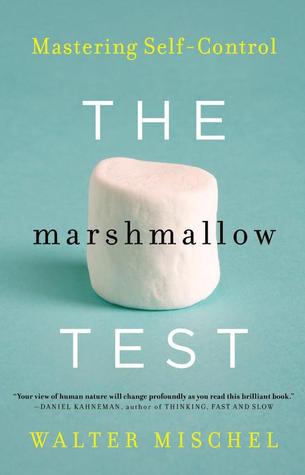More on this book
Community
Kindle Notes & Highlights
Read between
August 25 - August 26, 2023
It’s important to note that high stress attenuates the cool system and accentuates the hot system.
When dealing with temptations, one way to momentarily escape the hot system is to imagine how someone else would behave.
if we feel greater continuity with who we will become, we might also be willing to sacrifice more of our present pleasures for the sake of that future self.
try to imagine yourself doing it in the present. Simulate the events as vividly as possible, in great detail, by essentially pre-living them.
As a general rule for most people, if there is nothing you can do to reduce the stress because the situation is out of your control, monitoring typically increases anxiety and stress, and blunting tends to be more adaptive and self-protective.
“Take two aspirins and call me in the morning” would be a coldhearted response to a friend’s late-night report of fresh heartbreak, but it has a solid basis in the research. Naomi Eisenberger and her colleagues at the University of California in Los Angeles gave volunteers either an over-the-counter (nonprescription) painkiller or a placebo to take every day over the course of three weeks.
The psychological immune system finds ways for us to avoid hating ourselves for bad outcomes and credit ourselves for the good ones.
Taylor and her team demonstrated that high self-enhancers,
in fact have lower chronic biological stress levels.
This reduces stress, putting high self-enhancers in a more self-soothing, recuperative mode, in which they can restore themselves and heal rather than having to tense up for the next battle—whether
The realists who perceive themselves more accurately experience lower self-esteem and more depression, and they are generally less mentally and physically healthy.
To be able to delay gratification and exert self-control is an ability, a set of cognitive skills, that, like any ability, can be used or not used depending primarily on the motivation to use it.
It is the stability of our If-Then patterns over time that leads us to think that we consistently exhibit a particular trait. Our intuition of consistency is neither paradoxical nor illusory. It is just not the kind of consistency that researchers had been looking for during much of the last century.
A map of your If-Then situation-behavior signatures can alert you to your hot spots and when and where you are prone to react in ways that you are likely to later regret.
Bandura’s research showed that the best way to overcome phobias is to first observe the fearless model and then, with the model’s guidance and support, try it and master it yourself.
The fear produced when Bridgeman felt that the bridge was about to split during the sudden storm had to be disconnected from bridges.
Always postponing gratification and continuously working and waiting for more marshmallows can be the unwise choice.
We are both ants and grasshoppers, and to lose the hot emotional system and live continually dominated by the cool cognitive system in the service of a possible future can become a life story as unsatisfying as its opposite.
Likewise, the normal adult and aging brain can benefit from relatively simple interventions to enhance EF. Two of the most notable are physical exercise, even in moderate amounts and over short time periods, and virtually anything that minimizes loneliness, provides social support, and strengthens the individual’s ties and connectedness to other people.
Regardless of age, the core strategy for self-control is to cool the “now” and heat the “later”—push the temptation in front of you far away in space and time, and bring the distant consequences closer in your mind.
In life, employing If-Then implementation plans has helped adults and children control their own behavior more successfully than they had imagined possible.
One way to identify our own hot spots is to keep a journal to track moments when we’ve lost control,
The hard part is maintaining the change over time, which is true for most efforts to enhance self-control, from dieting to giving up cigarettes. If we persist, however, the gratification that our new behavior produces will help sustain it: the new behavior itself becomes valued, no longer a burden but a source of satisfaction and self-confidence.
If we don’t have such forward-looking employers, we can try in our halcyon days to connect more closely with our future selves, to keep who and what we are trying to become in mind, to construct a life story that has continuity and direction and long-term goals that become visible not just when looking back but also when looking ahead.
You look again at the painful experience—not through your own eyes, but as if you were observing from a distance, like a fly on the wall, observing what happened to a third party.
By increasing your psychological distance from the event, you reduce stress, cool the hot system, and can use the prefrontal cortex to reappraise what happened so that you can make sense of it, gain closure, and move on.
But arguably the best answer to the “What can we do to help our children?” question is to model what you would like them to become.
The biggest challenge for all of us—not just for the child—may be to figure out when to wait for more marshmallows and when to ring the bell and enjoy them. But unless we learn to develop the ability to wait, we don’t have that choice.


